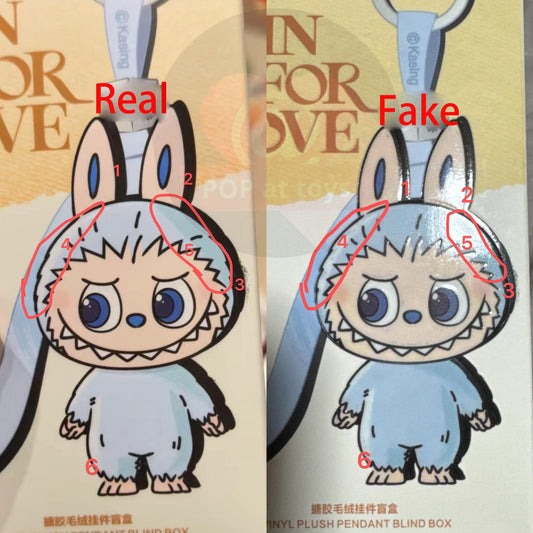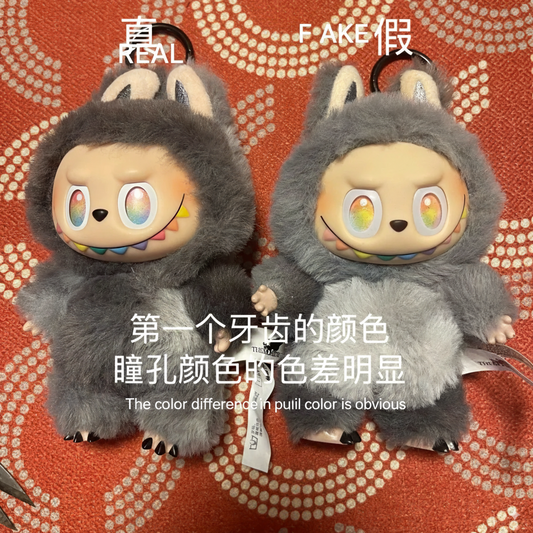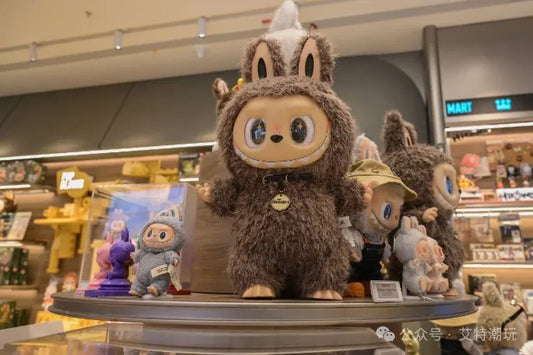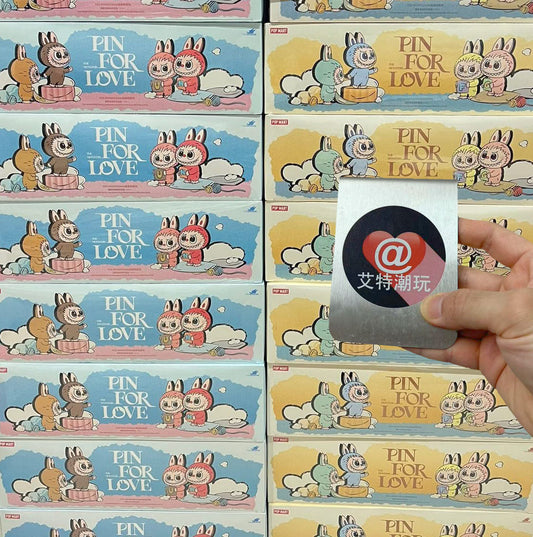Let’s Dive into Labubu — The Trendy Toy Sensation and the Billion-Dollar Empire Behind It: POP MART
แบ่งปัน

Do you know just how popular Labubu is? When the Thai princess carries her Hermès bag, Labubu is still by her side as the perfect accessory. Actress Liu Yifei shook hands with it on stage, Rosé made sure to take a photo with it, and Lisa literally screamed with excitement when she saw it. Even Thailand’s Minister of Tourism personally welcomed Labubu to join a national tourism campaign.
Recently, the launch of the Labubu 3.0 series caused a frenzy — the moment it went on sale, it sold out instantly. This “walking money shredder,” which has driven wealthy collectors across Asia to empty their bank accounts, is none other than one of the hottest IPs in the designer toy industry today — Labubu.

What’s worth noting is that Labubu didn’t just appear out of thin air. It originated from the picture book series The Monsters Trilogy by artist Kasing Lung, a signed artist under POP MART. Designed as a mystical creature from the northern European forests, Labubu naturally carries a unique fantasy vibe.
With its nine little teeth, upright pointy ears, and mischievous yet optimistic personality, Labubu has that irresistible “contrast charm” — it looks a little naughty on the outside but is actually pure and kind at heart. This cute contradiction makes people fall for it instantly. But Labubu’s meteoric rise isn’t just luck — it’s also the result of POP MART’s masterful operations.
Before we talk about that, let’s take a quick look at POP MART’s story. You might think POP MART started out as a blind box giant, but in reality, it began as a regular toy and lifestyle goods store.
Back in 2010, POP MART opened its first store in Beijing.

The founder, Wang Ning, originally envisioned it as a trend-focused lifestyle supermarket, selling stationery, accessories, and creative products. However, the market didn’t respond well, and sales were poor.
The turning point came in 2016, when POP MART discovered, through consumer research, the rising popularity of a character called Molly — a pouty-faced girl designed by Hong Kong artist Kenny Wong.
Wang Ning quickly flew to Hong Kong, bought out the licensing rights for Molly, and introduced a blind box model into the designer toy industry. This innovation brought excitement, mystery, and collectibility into the shopping experience, attracting a wave of young consumers while also driving a booming secondary resale market.
Just like Labubu today, Molly once dominated the market. In the resale scene, Labubu’s Macaron series hidden edition has seen prices soar over 877%, while the Vans collaboration reached an unbelievable 1,284% markup — earning POP MART the nickname “The Plastic Moutai” (referring to China’s premium liquor, known for its high resale value).

Interestingly, POP MART didn’t actually invent blind boxes. Some say they originated from American vending machines, while others claim they came from Japanese capsule toys. But POP MART was the first to successfully merge blind boxes with designer toys, creating a revolutionary business model.
With this formula — trendy IP + blind box experience — POP MART grew from a small Beijing shop into a multi-billion-dollar empire.
According to financial reports, since launching blind boxes in 2016, POP MART turned profitable by mid-2017, went public in Hong Kong in 2020, and by 2025, its market value has skyrocketed to 249 billion RMB

Now back to Labubu — in its early years, the Labubu series remained relatively unknown and didn’t make much noise in the toy community. But in 2024, everything changed.
Global superstar Lisa (BLACKPINK) was repeatedly spotted carrying Labubu keychains during public events. She frequently shared her love for Labubu on social media, voluntarily promoting the IP to millions of fans.
This celebrity endorsement helped Labubu break out of its niche, quickly capturing mainstream attention. Lisa’s influence brought phenomenal exposure to the brand and ignited massive buying waves among K-pop fans. Soon, Labubu became a trending topic not just in China, but also in Thailand, Vietnam, Singapore, and other Southeast Asian countries — opening up the global market for POP MART.

Another key reason behind Labubu’s ongoing success is the social nature of blind boxes.
The “surprise factor” of not knowing what’s inside creates an addictive unboxing thrill, combined with a strong desire to collect them all. This dual appeal fuels a sustained buying frenzy and makes blind boxes inherently social objects.
On platforms like Instagram, TikTok, and Xiaohongshu, owning rare Labubu editions has become a status symbol — a way to show off your unique taste and stand out from the crowd.
According to popattoys’ analysis, the launch of Labubu plush keychains was the true turning point. Previously, blind boxes were mainly display items, sitting in collectors’ cabinets. Plush keychains, however, changed the game completely — suddenly, Labubu became portable.
From subway commutes to coffee shop hangouts, people started taking Labubu everywhere, unintentionally turning themselves into walking brand ambassadors. This increased visibility amplified the IP’s influence and helped it go viral even faster.

However, behind POP MART’s incredible success lies hidden risks.
Although investors call it the “Plastic Moutai,” POP MART is fundamentally different from the real Moutai. Moutai’s value increases with time thanks to its five-year aging process — its products become more valuable the longer they sit in storage.
POP MART, on the other hand, is a “prisoner of trends.” To survive, it must constantly launch new IPs and continuously innovate to keep up with fast-changing tastes.
This also means every POP MART IP has a short life cycle. For example, Molly once dominated POP MART’s revenue, but has since been overtaken by Labubu.
The big question is: What happens when Labubu fades away? Can POP MART create the next big hit before consumer excitement cools off? If not, how long can this billion-dollar blind box empire sustain its success?
Once the star player, Molly has now been replaced by Labubu. But when Labubu’s hype dies down, will POP MART have another IP ready to step up?
And when the consumer frenzy slows, how long can this blind box empire hold on?
Finally — have you ever bought a blind box? Which IP is your favorite?
Let’s chat in the comments below!




